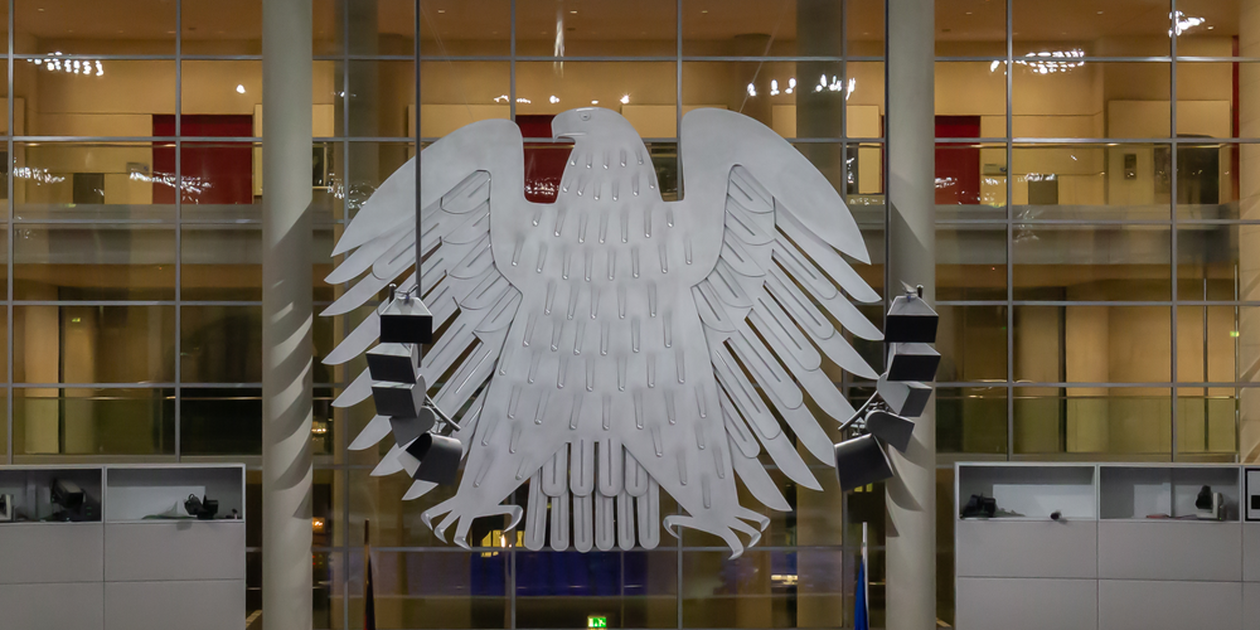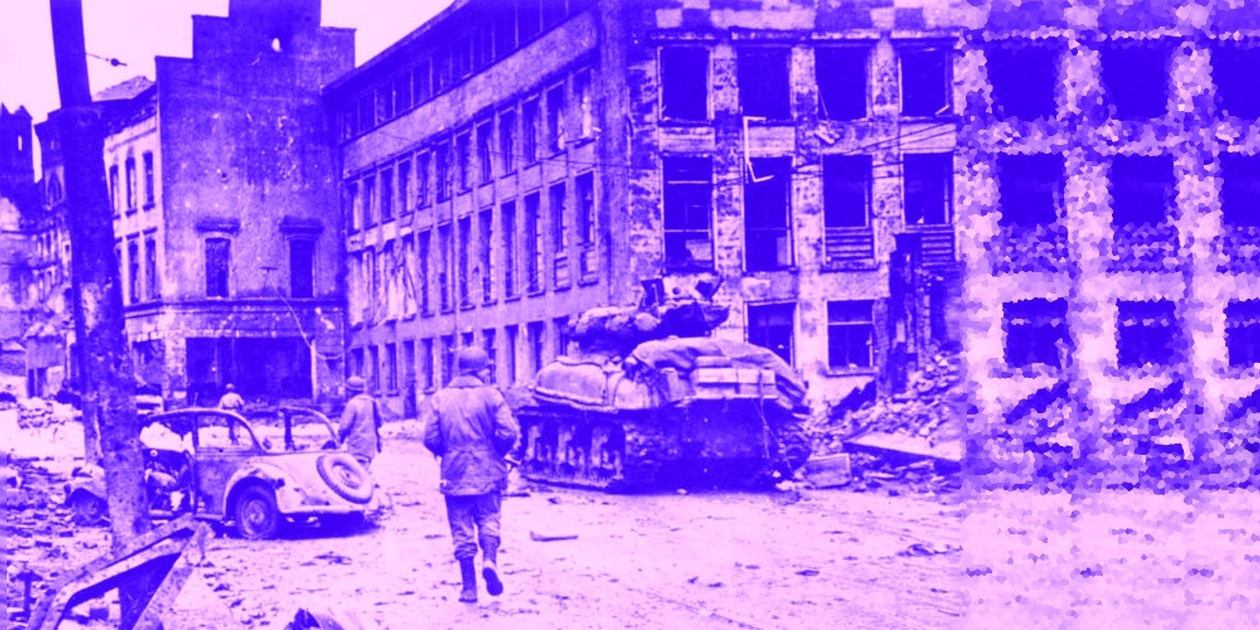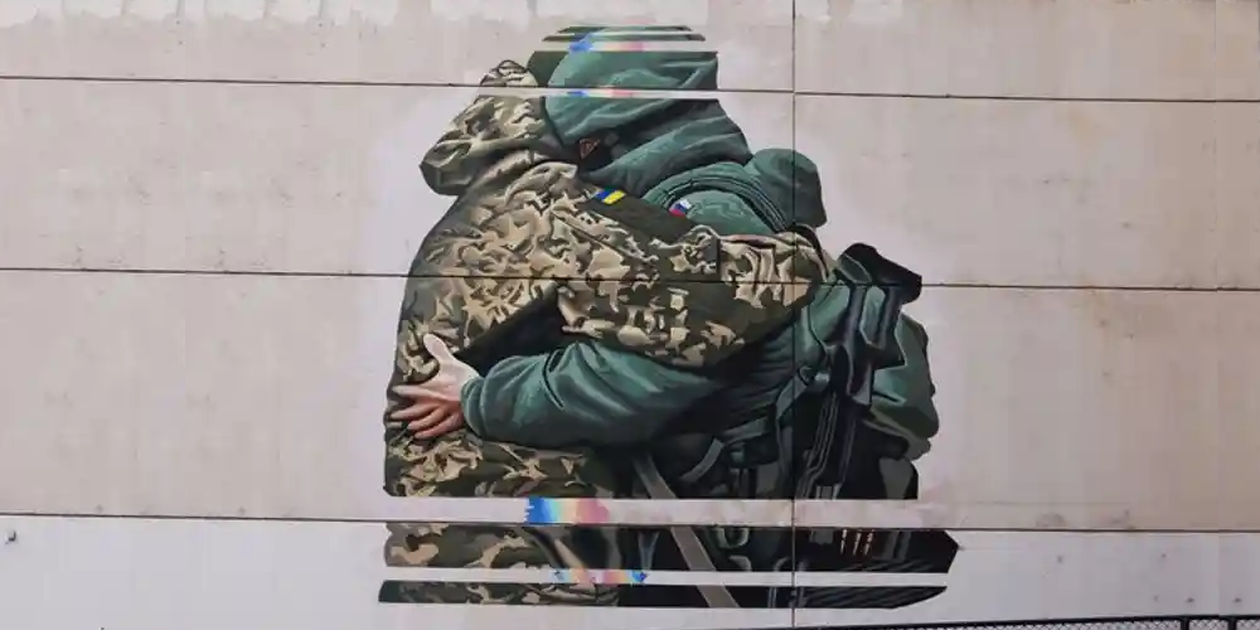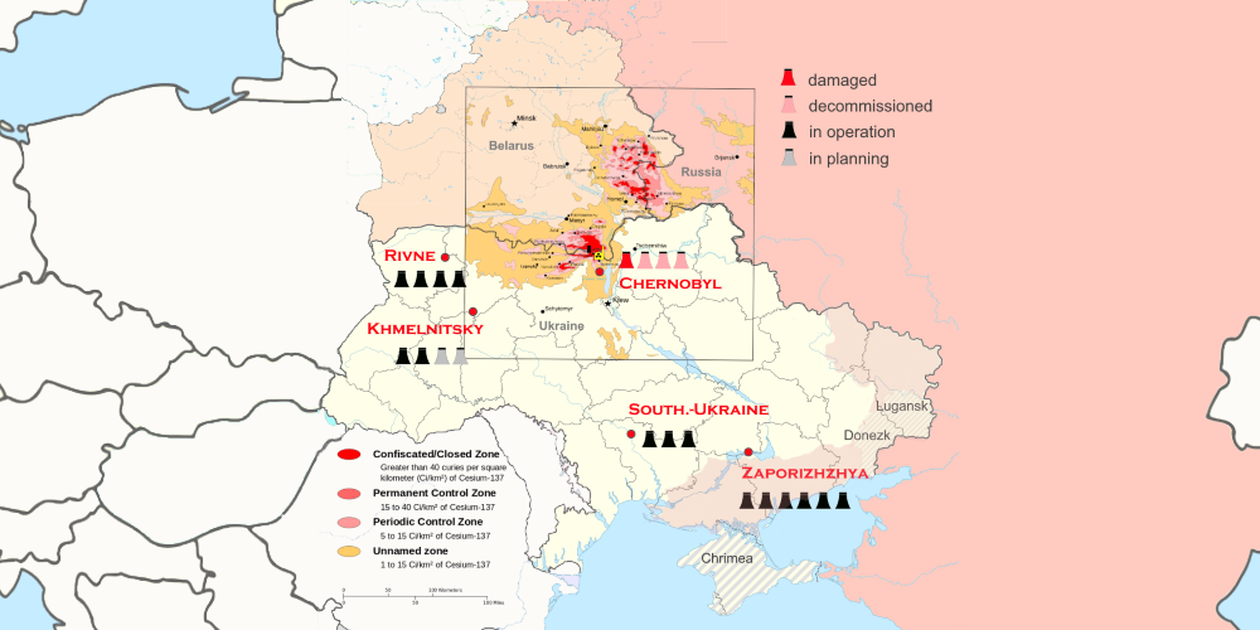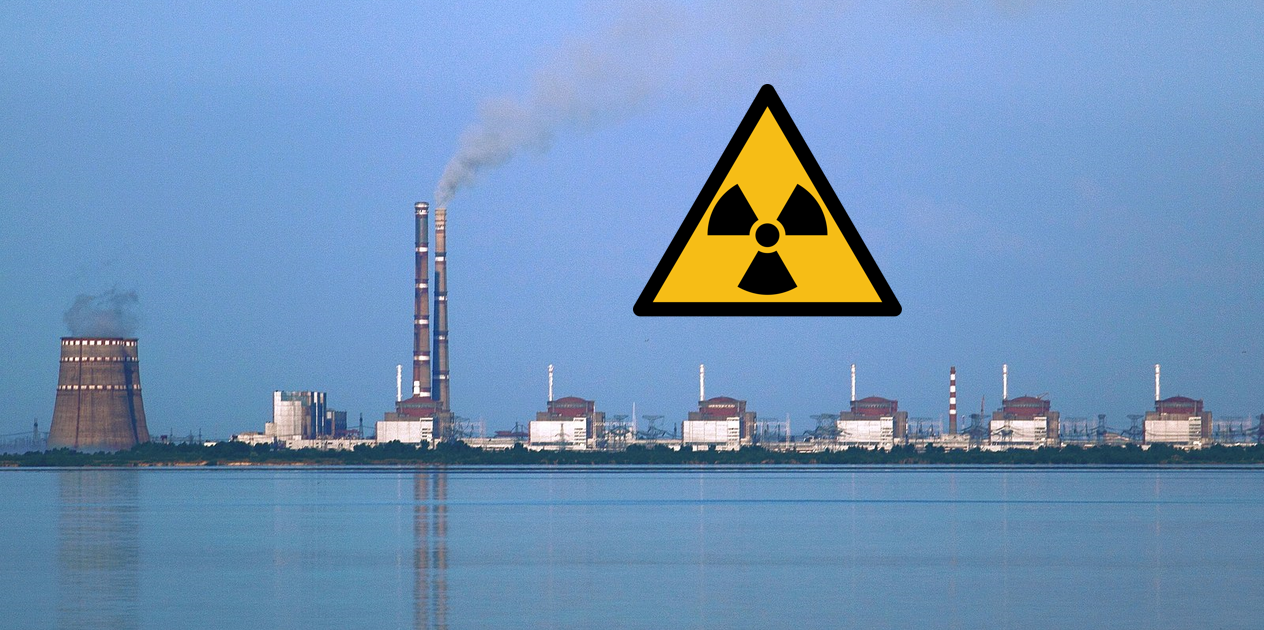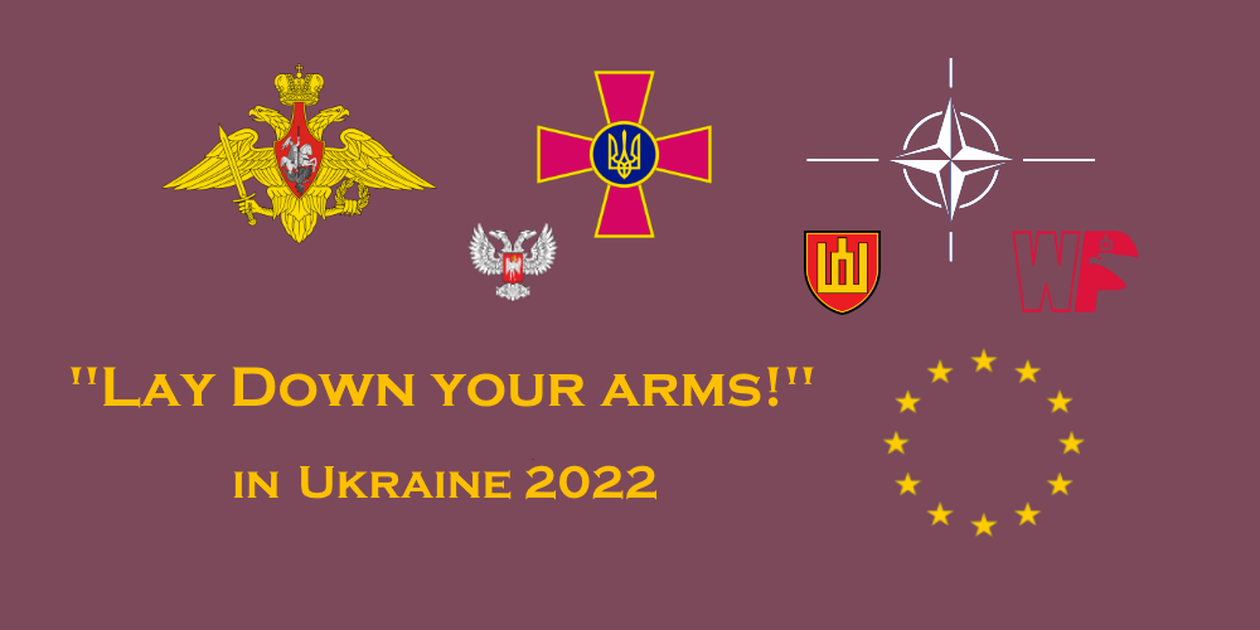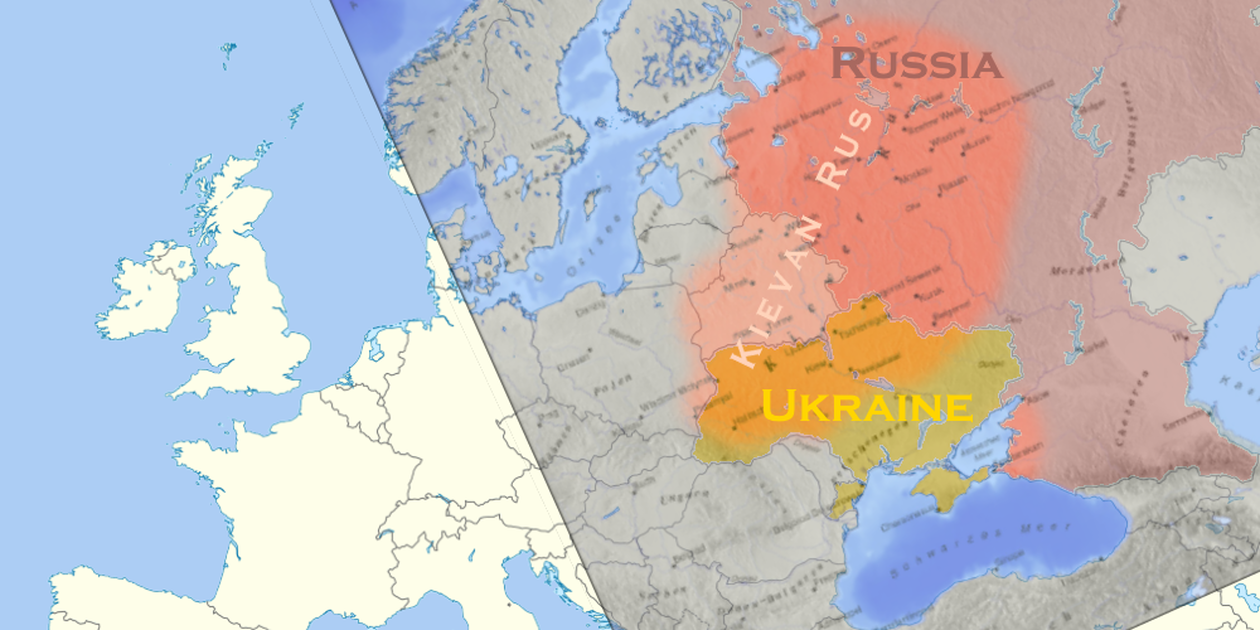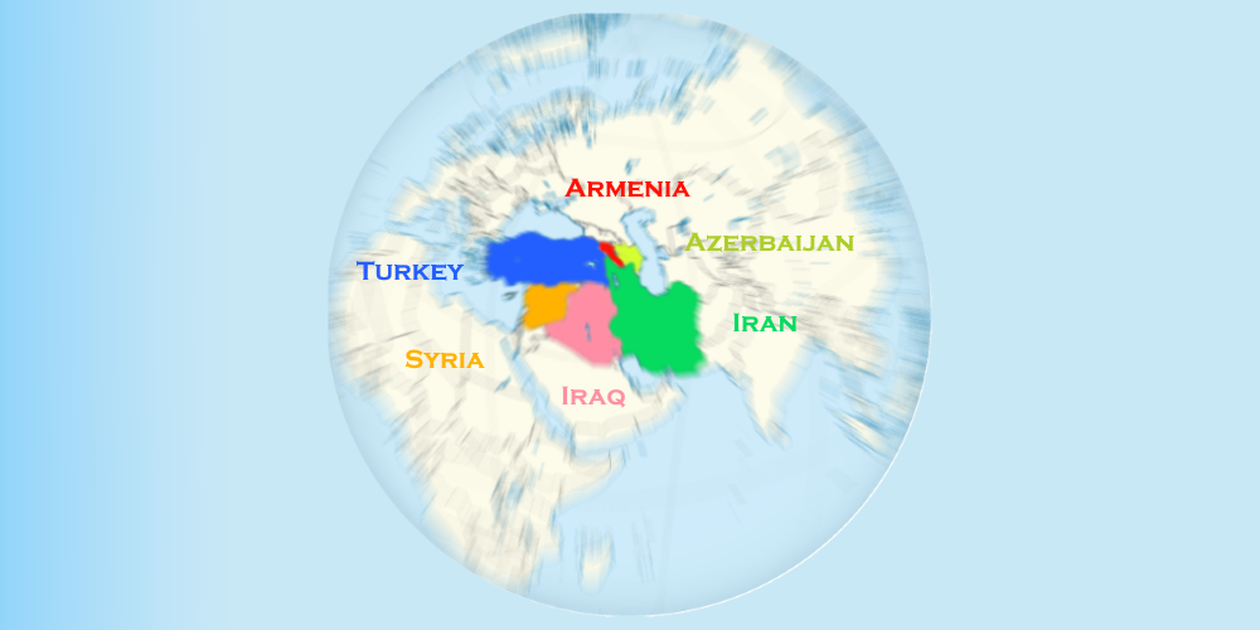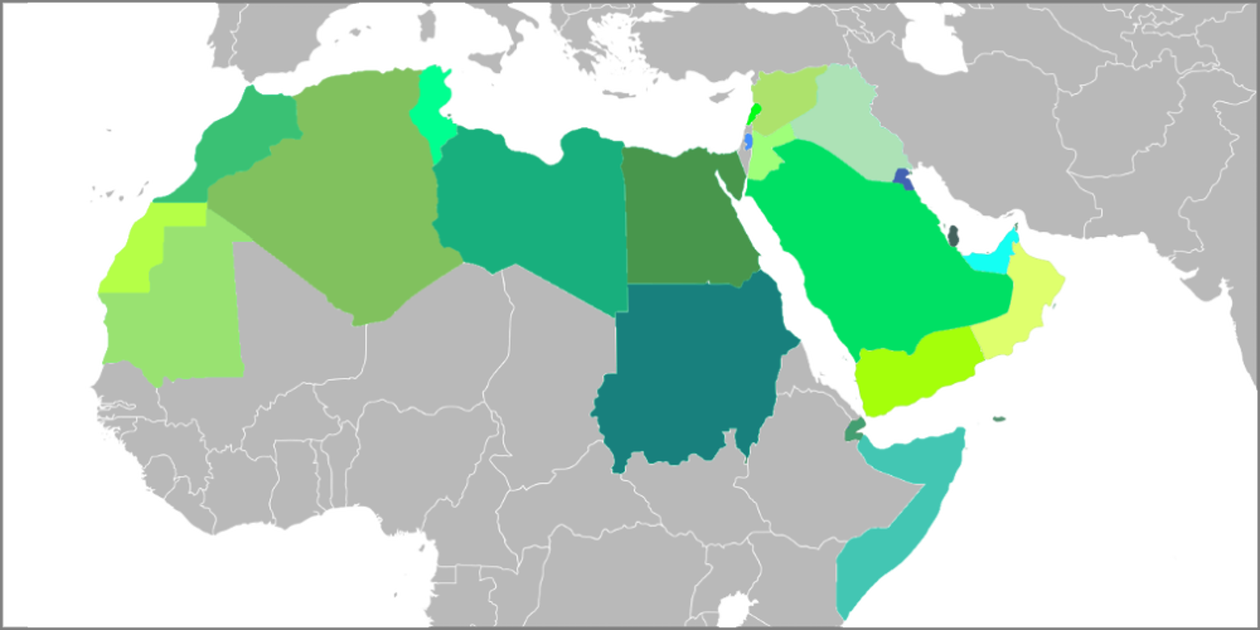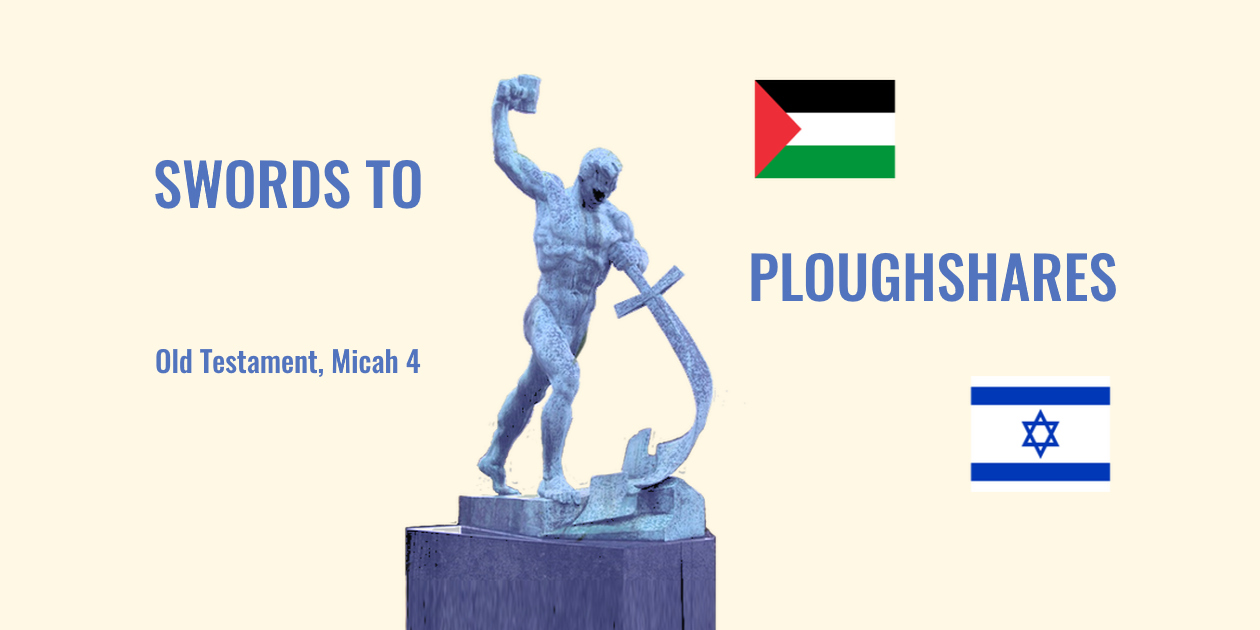
Image sources:
Andrew W. McGalliard, epalese soldiers outfitted in protective masks display their short assault rifles, in: Wikipedia, 29.12.2003, https://commons.wikimedia.org/wiki/File:NepalesischeUNSoldaten1993.jpg,
PRIF – HSFK, Peace Research Institute Frankfurt, The PRIF Dataset on Humanitarian Military Interventions since 1945, Status: 31.8.2023, http://www.humanitarian-military-interventions.com/
Note: The HSFK map above does not stand up to scientific criteria: the term “humanitarian intervention” only appears on political agendas. Since 2005, international law has referred to the concept of “responsibility to protect” (R2P). This was only decided once by the UN Security Council, namely in the case of Libya in 2011. Neither the military intervention in Kosovo/Serbia (1999) nor that in Donbass/Ukraine was or is covered by international law. The following article analyzes this.
 REVIEW OF THE NATO-INTERVENTION IN KOSOVO / YUGOSLAVIA (1999)
REVIEW OF THE NATO-INTERVENTION IN KOSOVO / YUGOSLAVIA (1999) Statement by German Chancellor Gehard Schröder
on the situation in Kosovo on March 24, 1999, Berlin
“Dear fellow citizens,
This evening NATO began airstrikes against military targets in Yugoslavia. In doing so, the alliance wants to prevent further serious and systematic violations of human rights and prevent a humanitarian catastrophe in Kosovo.
Yugoslav President Miloševic is waging a merciless war there. The Yugoslav security forces have intensified their terror against the Albanian majority in Kosovo, despite all warnings. The international community cannot stand idly by and watch the human tragedy this has caused in this part of Europe. We are not waging war, but we are called upon to implement a peaceful solution in Kosovo, including through military means. […]”
Source:
Die Bundesregierung, Erklärung von Bundeskanzler Gerhard Schröder zur Lage im Kosovo [Statement by Federal Chancellor Gerhard Schröder on the situation in Kosovo] am 24. März 1999, Bulletin 13-99, 30. März 1999, Berlin, https://www.bundesregierung.de/breg-de/service/bulletin/erklaerung-von-bundeskanzler-gerhard-schroeder-807814.
Address by Russian President Vladimir Putin
Announcement of a military operation in Donbass, February 24, 2022, Moscow
“Dear citizens of Russia! […]
Circumstances require us to act decisively and immediately. The people’s republics in Donbass asked Russia for help. In this regard, in accordance with Article 51, Chapter 7 of the UN Charter, with the consent of the Federation Council and in accordance with the treaties of friendship and assistance with the DPR and the LPR ratified by the Federal Assembly, I decided to conduct a special military operation” [. ..].
“[Russia: …]’s goal: Protect people who have been persecuted by the Kiev regime for eight years and are facing genocide, and for this we will work for the demilitarization and denazification of Ukraine and bring to justice those who committed numerous bloody crimes against civilians, including Russian citizens” […].
Source:
Путин объявил о специальной военной операции в Донбассе [Putin announced a special military operation in Donbass], Moskau, Ria Novosti, 24.2.2022, https://ria.ru/20220224/operatsiya-1774620380.html
 ARTICLES OF THE UN-CHARTER OF 1945
ARTICLES OF THE UN-CHARTER OF 1945 ARTICLES 1 & 2 (CHAPTER I): THE PROHIBITION OF VIOLENCE AND THE ASYMMETRIES IN THE UN SECURITY COUNCIL
Charter of the United Nations (1945)
Chapter I – Purposes and Principles
Article 1
The Purposes of the United Nations are:
1. To maintain international peace and security, and to that end: to take effective collective measures for the prevention and removal of threats to the peace, and for the suppression of acts of aggression or other breaches of the peace, and to bring about by peaceful means, and in conformity with the principles of justice and international law, adjustment or settlement of international disputes or situations which might lead to a breach of the peace; […]
Article 2
The Organization and its Members, in pursuit of the Purposes stated in Article 1, shall act in accordance with the following Principles. […]
3. All Members shall settle their international disputes by peaceful means in such a manner that international peace and security, and justice, are not endangered.
4. All Members shall refrain in their international relations from the threat or use of force against the territorial integrity or political independence of any state, or in any other manner
inconsistent with the Purposes of the United Nations.. […]
Source: UN-Charter, 26.6.1945.
♦ The international law principle of the prohibition of violence in the UN Charter still applies without restriction today (UN-Charter, 26.6.1945). That’s why there are almost no official declarations of war today. The military operations of the five veto powers of the UN Security Council since 1945 (see map above) have remained exceptions that confirm this rule. They remained unpunished only because of their position of power in the UN Security Council, but this meant that they were unable to establish new customary international law in their favour.
♦ The term “war of aggression” in the case of Ukraine, which is widespread in German and English-speaking countries, is a political term that describes the military opponent as the sole aggressor. However, international law distinguishes between a “declared war” and an “international armed conflict” (Ipsen 2018: 1290). According to this, the wars in Kosovo, Libya and Ukraine are “only” international armed conflicts under international law (see the International Committee of the Red Cross, icrc.org/de, Ukraine 2023).
♦ In the case of Ukraine, it is legally relevant that an international conflict is not only to be classified as “armed” if one state (here the Russian Federation) uses weapons against another country (Ukraine) and thereby causes damage. The use of means and methods of warfare with a potential for harm is sufficient (Ipsen 2018: 1291, on international humanitarian law: eda.admin.ch, 2018: 34, bmvg.de, 2018: 20). Russia indeed views Kiev’s desire for nuclear rearmament and the storage of biological weapons as aggression (see below).
DEFICITIES AND CONTRADICTIONS IN THE UNITED NATIONS SANCTIONS POLICY
UN Security Council sanctions regime
2023 Fact sheets
The Security Council established its first sanctions regime, in response to the illegitimate seizure of power in Southern Rhodesia, in 1968. To date, the Council has established 31 sanctions regimes in total, […]
Sanctions regimes can, and have frequently been, amended or lifted as the Council continues to evaluate conflict situations.
Today, there are fifteen active regimes […]
Over the past five decades, sanctions regimes have changed in focus and scale. One of the most significant changes has been the shift away from use of comprehensive sanctions. […]
According to a recent comprehensive study […], UN targeted sanctions have been assessed to be effective in coercing a behavioral change in 10% of cases. They are more successful in constraining negative behavior (in 28% of cases) and in signaling support for international normative frameworks (in 27% of cases). Source: un.org, 3.4.2023: 4
♦ As a result of the asymmetries in the UN system, the veto powers of the Security Council fought wars without declarations of war. They did not have to fear any sanctions or exclusion from the UN. In contrast, other states were subjected to harsh sanctions regimes. Among the countries affected, only one country is from America (Haiti) and one from Europe (the former Yugoslavia), while 17 countries are in Africa and 8 sanctions regimes affect the Middle East. Numbers could hardly express the imbalances in the international system more clearly.
♦ In addition, recent studies by the UN Security Council (un.org, 3.4.2023, left column) prove the ineffectiveness of the sanctions. In only 10 percent of cases did they achieve their goals and in only a third did they lead to the restoration of international law. Therefore, new sanctions instruments are not needed to enforce the UN Charter’s prohibition on the use of force. Rather, the veto states of the UN Security Council must first set a good example. Only if they stop abusing their position of power can lost trust in international law be restored.
EXCEPTIONS TO THE PROHIBITION OF VIOLENCE: UN CHARTER – ARTICLE 51: THE RIGHT TO SELF-DEFENCE
Charter of the United Nations (1945)
Chapter VII – Action with Respect to Threats to the Peace, Breaches of the Peace, and Acts of Aggression
Article 51
Nothing in the present Charter shall impair the inherent right of individual or collective self-defense if an armed attack occurs against a Memher of the United Nations, until the Security Council has taken the measures necessary to maintain international peace and security. Measures taken by Members in the exercise of this right of self-defense shall be immediately reported to the Security Council and shall not in any way affect the authority and responsibility of the Security Council under the present Charter to take at any time such action as it deems necessary in order to maintain or restore international peace and security.
Source: UN-Charter, 26.6.1945.
♦ The described asymmetries in the power structure of international politics play a decisive role in the Ukraine war. US President Barack Obama already wanted to downgrade the nuclear power Russia to a regional power. In the Ukraine war, NATO states are now calling for Russia to be suspended from the UN Security Council. Therefore, Western security experts support Ukraine in its official demand to doubt Russia’s succession to the former Soviet Union (mfa.gov.ua, 26.12.2022). Kiev wants to take the coveted veto position in the Security Council itself.
♦ The Russian Federation sees its threat perception all the more confirmed. It therefore bases its current military intervention on Article 51 of the UN Charter, which grants member states a right to self-defense. This is different from NATO military interventions (including in Kosovo and Libya). If Moscow’s allegations that Kiev is disregarding the Nuclear Non-Proliferation Treaty and have violated the Biological Weapons Convention are confirmed (council.gov.ru, 12.4.2023), the international law assessment of the Russian military intervention could change.
AFTER THE END OF THE COLD WAR (1990): GROWING CRITICISM OF THE DEFICITS IN THE UN SYSTEM
Charter of the United Nations (1945)
Chapter VII – Action with Respect to Threats to the Peace, Breaches of the Peace, and Acts of Aggression
Article 42
The Security Council consider that measures provided for in Article 41 [Prohibition of Gun Violence] be inadequate or have proved to be inadequate, it may take such action by air, sea, or land forces as may be necessary to maintain or restore international peace and security. Such action may include demonstrations, blockade, and other operations by air, sea, or land forces of Members of the United Nations.
Source: UN-Charter, 26.6.1945.
♦ Since the end of the Cold War, Russia has refrained from international military operations, while the NATO states have pretended to resolve regional conflicts by force. However, their interventions in Iraq, Bosnia-Herzegovina and Yugoslavia were increasingly criticised, as they quite obviously violated the sovereign rights of these states. In order to legitimise these interventions under international law, experts first developed the concept of “humanitarian” intervention and finally the Responsibility to Protect (R2P) (Zangl 2002).
♦ Article 42 of the UN Charter authorises the use of military force in exceptional situations (see left column, UN-Charter, 26.6.1945). In 2000, the Canadian government commissioned a commission (ICISS) to explore ways of anchoring a “right to humanitarian intervention” in the UN system. In the event of serious human rights violations, the principle of non-intervention should give way to an international responsibility to protect in favour of foreign armed forces (ICISS-Report 2001: 85; e-book, Synopsis (1) B).
THE UN SUMMITS 2005 / 2009: THE INTERNATIONAL LAW DEFINITION OF THE RESPONSIBILITY TO PROTECT
UN General Assembly (12.1.2009)
Implementing the responsibility to protect
Report of the Secretary-General
“[…] A three-pillar strategy is then outlined for advancing the agenda mandated by the Heads of State and Government at the Summit, as follows:
Pillar one
The protection responsibilities of the State (sect. II)
Pillar two
International assistance and capacity-building (sect. III)
Pillar three
Timely and decisive response (sect. IV) […].
51. The United Nations has a strong preference for dialogue and peaceful persuasion. Therefore, pillar three encompasses, in addition to more robust steps, a wide range of non-coercive and non-violent response measures under Chapters VI and VIII of the Charter. Under the Charter, many of these can be undertaken by the Secretary-General or by regional or subregional arrangements, without the explicit authorization of the Security Council. […]“
Source: un.org, 2009
♦ The draft submitted by Canada to the International Commission on Intervention and State Sovereignty (ICISS) was recognised by the 2005 UN World Summit, but only partially adopted. The UN placed the responsibility to protect the population first and foremost in the hands of the governments of its member states (un.org, 2005: 22). Only the Security Council, and not the General Assembly, can still decide on the use of military force in accordance with Article 42 of the UN Charter. There has therefore been no change in international law.
♦ The same applies to the 2009 UN Millennium Summit, at which the concept of the responsibility to protect was further developed. As the UN Secretary-General explains in his report, it now consists of three pillars. The last pillar comprises “collective measures”, which the Secretary-General can also take independently of the Security Council and without the consent of the state concerned. These are first and foremost committed to prevention and peaceful dialogue with the parties to the conflict. According to the UN Charter, coercive measures and in particular the use of force remain the last resort and still require the approval of the Security Council (un.org, 2009: 23). Thus, nothing fundamental has changed at this UN summit either.
INTERPRETATIONS AND MISUSE OF THE R2P CONCEPT BY INTERNATIONAL ACTORS
UN Security Council meeting on the concept of “Russophobia”, 14.3.2023
„The Security Council heard today dissenting assertions from three briefers — two calling attention to Russophobia in Ukraine and one countering that claim as a colonial endeavour to justify war crimes — in a meeting requested by the Russian Federation, as delegates weighed in with their own prescriptions.
[…] Dmitry Vasilets, Deputy Head of the Ukrainian Trade Union of Law Workers, noting that he speaks on behalf of the millions of Russian citizens in Ukraine, added that speaking Russian was prohibited in schools beginning in 2020 and then in movie theatres, public buildings and other locations since 2021. ‘That is barbarism that has been enshrined in law by [Ukraine President Volodymyr] Zelenskyy,’ he stated, emphasizing that the use of one’s mother tongue is a human right protected under international law. Citing various instances of discrimination, including on social media platforms, he declared that ‘the Russian language is gradually being destroyed’.
Timothy Snyder, Professor of History at Yale University, pointed out that the term ‘Russophobia’ is an attempt to justify the Russian Federation’s war crimes in Ukraine. The harm being done to Russians and Russian Federation culture is primarily due to Moscow’s own policies and actions, he countered, spotlighting the emigration of creative Russians due to its invasion of Ukraine; destruction of independent Russian journalism; attacks on culture, books, museums and other landmarks; mass killings of Russian speakers and citizens; and Russian Federation State television proclamations. The claim that Ukrainians are sick with a disease called ‘Russophobia’ is simply colonial rhetoric and part of a larger strategy of hate speech, he stressed.”
Source: UN-SC, 14.3.2023
♦ However, at the UN Millennium Summit in 2009, existing conflict prevention instruments were used and expanded. What has been new since 2008 is the appointment of a special adviser to the Secretary General on the Responsibility to Protect (R2P). He shares a joint office with the Special Advisor for the Prevention of Genocide, which was founded in 2004 ((un.org, Genocideprevention). The person responsible for R2P prepares annual reports on the implementation of the protection concept (un.org, R2P) and issues statements on UN decisions and positions (un.org, Statements).
♦ The circle of supporters of the ICISS concept still wants to upgrade the responsibility to protect to a norm under international law. He founded the Global Center for the Responsibility to Protect (GCR2P), which draws on governments of influential UN members and NGOs such as Human Rights Watch, International Crisis Group, Oxfam International, Refugees International and the World Federalist Movement (GCR2P, About). It forms the core of a network of national governments and around 50 other NGOs: the International Coalition for the Responsibility to Protect (ICR2P).
♦ The example of Ukraine shows the misuse of the R2P concept. After the fall of the Ukrainian government at the beginning of 2014, preventive UN measures would have been necessary: In contrast to Crimea, violence between the Russian-speaking minority and the Ukrainian military escalated in the eastern Ukrainian regions. However, neither the UN Office for the Prevention of Genocide and the Responsibility to Protect (un.org, Statements) nor the Global Center for the Responsibility to Protect (GCR2P) network had dealt with the situation in eastern Ukraine before the start of the war (see left column).
 KOSOVO, LIBYA AND UKRAINE COMPARED
KOSOVO, LIBYA AND UKRAINE COMPAREDTHE BLUEPRINT FOR LATER MILITARY INTERVENTIONS: THE KOSOVO CONFLICT IN EX-YUGOSLVIA
EU fails in attempt to mediate between Serbia and Kosovo
“Brussels. EU efforts to defuse the serious tensions between Serbia and Kosovo have failed again. At mediation talks on Thursday in Brussels, Kosovo’s Prime Minister Albin Kurti did not accept a proposal for de-escalation, EU foreign policy chief Josep Borrell said after hours of negotiations in Brussels. Serbian President Aleksandar Vucic, on the other hand, would have supported it.
Specifically, according to Borrell, the proposal envisaged working simultaneously on the implementation of demands from Serbia and Kosovo. Accordingly, the establishment of the association of communities with a Serb majority in Kosovo, which was agreed years ago, should have started, while at the same time steps would have been taken towards recognition of Kosovo by Serbia. Unfortunately, Kurti insisted on de facto recognition as a first step, said Borrell. […]”
Source: handelsblatt.com, 14.9.2023
♦ NATO justified its military intervention in Yugoslavia in 1999 with the argument that it wanted to “prevent serious and systematic violations of human rights and prevent a humanitarian catastrophe” in the province of Kosovo (bundesregierung.de, 24.3.1999). However, the conflict between Serbs and Kosovar Albanians could not be resolved by military means. On the contrary, over the last 25 years, the enemy images have become even more entrenched (see left column).
♦ The main beneficiary of this was the USA, which has since maintained its third-largest US military base outside the USA there (nzz.ch, 17.10.2022). Their Bondsteeel camp is a lawless space where human rights are abrogated, as the Council of Europe’s Human Rights Commissioner, Alvaro Gil Robles, reported (spiegel.de, 5.12.2005). The UN ombudsman in Kosovo, Marek Nowicki, also spoke about the secret prison in Kosovo, “which is not subject to any external civil or judicial control” (focus.de, 11.12.2013).
♦ If the NATO states were to judge the minority conflict in Ukraine by the same standards as that in the former Yugoslavia, they would have to defend the breakaway republics against the Ukrainian military alongside Russia. Similar to Serbia, which at the time questioned the autonomy statute of the province of Kosovo, Kiev abolished Crimea’s autonomy in 2014. Since then, however, NATO has not stood by the Russian-speaking Ukrainians, but instead support Kiev in fighting separatism with violence.
MISUSE OF THE “HUMANITARIAN” INTERVENTION IN LIBYA AS A REGIME CHANGE
Libya: Joint statement by President Sarkozy and Prime Minister Cameron (28.3.2011)
“On March 29, the international community will come together in London to accompany Libya into a new future. A new future in which the Libyan people will be freed from the yoke of violence and oppression and will be free to decide their own future.
The past ten days have been marked by events of the utmost importance. Following the Arab League’s call to protect the Libyan people, the United Nations Security Council adopted a landmark resolution on March 17 to protect civilians from the violence unleashed against them by Gaddafi’s war machine. […]
Our countries are committed to continuing to implement Security Council Resolution No. 1973 to protect the Libyan people. Other European countries and the Arab world are joining us. Only when the population is safe, is no longer threatened by attacks and the objectives of Resolution No. 1973 have been achieved will military operations be ended.
We emphasize that we do not envisage any military occupation of Libya that would violate the terms of the resolution. We reiterate our strong commitment to Libya’s sovereignty, independence, territorial integrity and national unity. […]”
Source:French Embassy in Vienna, at.ambafrance.org, 28.3.2011
♦ A striking example of the abuse of the responsibility to protect is the “humanitarian” intervention in Libya in spring 2011. To date, it is the only and probably last NATO mission that was founded on R2P and authorized by the UN Security Council. It is Resolution 1973 of March 17, 2011, which was intended to prevent an escalation of the Libyan civil war and to find a “sustainable and peaceful solution” between the Gaddafi regime and the insurgents (UN-Resolution 1973, point 2)
♦ The UN decision allowed UN member states to take measures to monitor compliance with the no-fly zone. However, leading NATO countries saw this as a approval for military intervention. France and the United Kingdom were not satisfied with Libyan Foreign Minister Moussa Kussa offering a ceasefire (faz.net, 18.3.2011). On March 19th The French military began attacks on Libyan forces, which only ended on October 31, 2011, after the death of the Libyan head of state.
♦ A year after the “humanitarian” intervention began, the UN Human Rights Council published a comprehensive report. It is not just the Gaddafi regime that is accused of violating international humanitarian law. There were also civilian casualties as a result of NATO air strikes (ohchr.org, 8.3.2012: 16). These ultimately fueled a Libyan civil war that has lasted for 12 years and destabilized the neighboring states of North Africa.
THE UKRAINE WAR BEGAN IN 2022 LIKE THE NUMEROUS NATO MILITARY INTERVENTIONS SINCE 1999
Text of Russian President Vladimir Putin’s speech (24.2.2022)
“Today I once again consider it necessary to return to the tragic events in Donbass and to the key issues of ensuring the security of Russia itself.[…]
After the collapse of the Soviet Union, a real division of the world began […].
Despite everything, in December 2021 we tried again to agree with the USA and its allies on the principles of ensuring security in Europe and the non-expansion of NATO. It’s all free. The US position has not changed. They do not consider it necessary to negotiate with Russia on this crucial issue for us, pursuing their own goals and neglecting our interests. […]
The further expansion of the infrastructure of the North Atlantic Alliance and the military development of the territories of Ukraine are unacceptable to us. The point, of course, is not in the NATO organization itself – it is just an instrument of US foreign policy. The problem is that in the areas bordering us – I would like to point out that these are our own historical territories – an ‘anti-Russia’ is emerging that is hostile to us and has been placed under full external control, by the armed forces of the NATO countries are intensively populated and pumped full of the most modern weapons. […]
This is not only a real threat to our interests, but also to the existence of our state and its sovereignty. This is the red line that has been mentioned again and again. It has been exceeded. […]”
Source: Moscow, ria.ru, Putin, 24.2.2022
♦ In his speech at the start of the war (February 24, 2022), President Vladimir Putin spoke openly about the motives of the military intervention. The motive of preventing a genocide in Donbass was officially in the foreground (see ria.ru, 24.2.2022). It was due to the domestic political pressure that the Russian Communist Party had built up with its parliamentary motion to recognize the separatist regions of eastern Ukraine (Riedel 2022/8: 5).
♦ The actual motive, however, was and is of a security policy nature. Moscow sees itself threatened by NATO’s continuous Easter expansion (ria.ru, Putin, 24.2.2022, left column). Ukraine is not just concerned with nuclear rearmament with the help of NATO. Kiev is also questioning Russia’s succession to the Soviet Union in the UN and its seat on the UN Security Council. The Russian military intervention can therefore also be seen as a reaction to an impending loss of authority, both domestically and internationally.
♦ To be honest, Moscow has not described its military operation in Ukraine as a “humanitarian intervention” within the meaning of the R2P concept. Nevertheless, the Ukraine conflict raises the question of what will happen next with international standards for banning genocide and for protecting human rights and minorities. The NATO and EU member states that initiated these standards have been silent about them for two years. They expose themselves to the accusation that they only demand this for their own population, but deny that other states are making similar efforts (Riedel 2022/2, Riedel 2022/8).
 THIS POST IS BASED ON THE FOLLOWING SOURCES:
THIS POST IS BASED ON THE FOLLOWING SOURCES:at.ambafrance.org, 28.3.2011, Libye-Déclaration conjointe de Nicolas Sarkozy, Président de la république française et de David Cameron, Premier ministre du Royaume-Uni (28.3.2011).
bmvg.de, 2018: 20, Bundesministerium der Verteidigung, Humanitäres Völkerrecht in bewaffneten Konflikten, Berlin 20.2.2018.
bundesregierung.de, 24.3.1999, Die Bundesregierung, Erklärung von Bundeskanzler Gerhard Schröder zur Lage im Kosovo am 24. März 1999, Bulletin 13-99, 30. März 1999, Berlin.
council.gov.ru, 12.4.2023, Постановление Совета Федерации Федералного Собрание Российской Федерации, Об итоговом докладе парламентской комиссии по расследованию обстоятельств, связанных с созданием американскими специалистами биологических лабораторий на территории Украины, Москва [Resolution of the Federation Council of the Federal Assembly of the Russian Federation dated April 12, 2023 No. 130-SF “On the final report of the parliamentary commission to investigate the circumstances related to the creation of biological laboratories by American specialists on the territory of Ukraine”, Moscow].
eda.admin.ch, 2018: 34, Eidgenössisches Departement für auswärtige Angelegenheiten EDA, ABC des humanitären Völkerrechts, Bern, 3. Auflage 2018.
faz.net, 18.3.2011, Nach UN-Resolution. Libyen kündigt sofortigen Waffenstillstand an, aktualisiert am 18.3.2011.
focus.de, 11.12.2013, Neue Beweise. Geheimgefängnisse in Osteuropa.
GCR2P, About, Global Centre for the Responsibility to protect, About us.
GCR2P, 31.5.2023, Global Centre for the Responsibility to protect, Ukraine.
handelsblatt.com, 14.9.2023, EU scheitert mit Vermittlungsversuch zwischen Serbien und Kosovo.
ICISS-Report 2001: 85; e-book, International Commission on Intervention and State Sovereignty, Gareth Evans, Mohamed Sahnoun, The Responsibility to Protect, December 2001.
icrc.org/de, Ukraine 2023, Internationales Komitee vom Roten Kreuz, Ukraine, Status: 21.9.2023.
Ipsen 2018, Knut Ipsen, Völkerrecht, Juristische Kurz-Lehrbücher, 7. Auflage, München 2018.
mfa.gov.ua, 26.12.2022, Міністерство закордонних справ України, Київ, Заява МЗС України щодо нелегітимності перебування Російської Федерації в Раді Безпеки ООН та Організації Об’єднаних Націй у цілому [Ministry of Foreign Affairs of Ukraine, Kiev, Statement of the Ministry of Foreign Affairs of Ukraine on the illegitimacy of the membership of the Russian Federation in the UN Security Council and the United Nations in general].
nzz.ch, 17.10.2022, Daniel Steinvorth, Russland spekuliert auf neue Gewalt in Kosovo – die Nato hilft, dass es friedlich bleibt.
ohchr.org, 8.3.2012, Human Rights Council, Human rights situation that require the Council’s attention. Report of the International Commission of Inquiry on Libya, 8.3.2012, A/HRC/19/68.
PRIF – HSFK, 31.8.2023, Peace Research Institute Frankfurt, The PRIF Dataset on Humanitarian Military Interventions since 1945, Stand: 31.8.2023.
ria.ru, 24.2.2022, Путин объявил о специальной военной операции в Донбассе [Putin announced a special military operation in Donbass], Moskau, Ria Novosti, 24.2.2022.
ria.ru, Putin, 24.2.2022, Текст обращения президента России Владимира Путина [Text of the speech by Russian President Vladimir Putin, Moscow].
Riedel 2022/2, Sabine Riedel, The Kurds in the Middle East. Peace-Policy Alternatives to Kurdish Separatism in Turkey, Iran, Iraq and Syria, FPK, Vol. 6, 2022/2, 2022 April 18, 31 pages.
Riedel 2022/8, Sabine Riedel, ”Lay down your Arms” (Bertha von Suttner). The Ukraine War in the Context of European Policy and Transatlantic Interests, FPK, Vol. 6, 2022/8, 2022 Sept 1, 28 pages.
spiegel.de, 5.12.2005, Geheimlager in Europa. “Jeder wusste, wie es in Bondsteel zugeht”.
un.org, 2005, UN-Resolution 60/1. 60/1. 2005 World Summit Out-come, General Assembly, Resolution adopted by the General Assembly on 16 September 2005.
un.org, 2009, United Nations, General Assembly, Sixty-third session, Implementing the responsibility to protect, 12.1.2009, A/63/677.
un.org, 3.4.2023, United Nations Security Council Subsidiary Organs, United Nations Security Council Sanctions Regime, 2023 Fact sheets.
un.org, Genocideprevention, United Nations Office on Genocide prevention and the responsibility to protect. Key Documents.
un.org, R2P, United Nations Office on Genocide prevention and the responsibility to protect. Responsibility to Protect. Key Documents.
un.org, Statements, United Nations Office on Genocide prevention and the responsibility to protect. Responsibility to Protect. Media. Public Statements.
UN-Resolution 1973, United Nations, Security Council, Resolution 1973 (2011) Adopted by the Security Council at its 6498th meeting, on 17 March 2011, S/RES/1973 (2011).
UN-SC, 14.3.2023, United Nations, Security Council, 9280th Meeting, 14.3.2023, SC/15226, ‘Russophobia’ Term Used to Justify Moscow’s War Crimes in Ukraine, Historian Tells Security Council, Other Briefers Declare Russian Language Gradually Being Destroyed.
Zangl 2002, Humanitäre Interventionen, in: Ferdowsi, Mir (Hr.): Internationale Politik im 21. Jahrhundert, München, 2002, 105-122.

